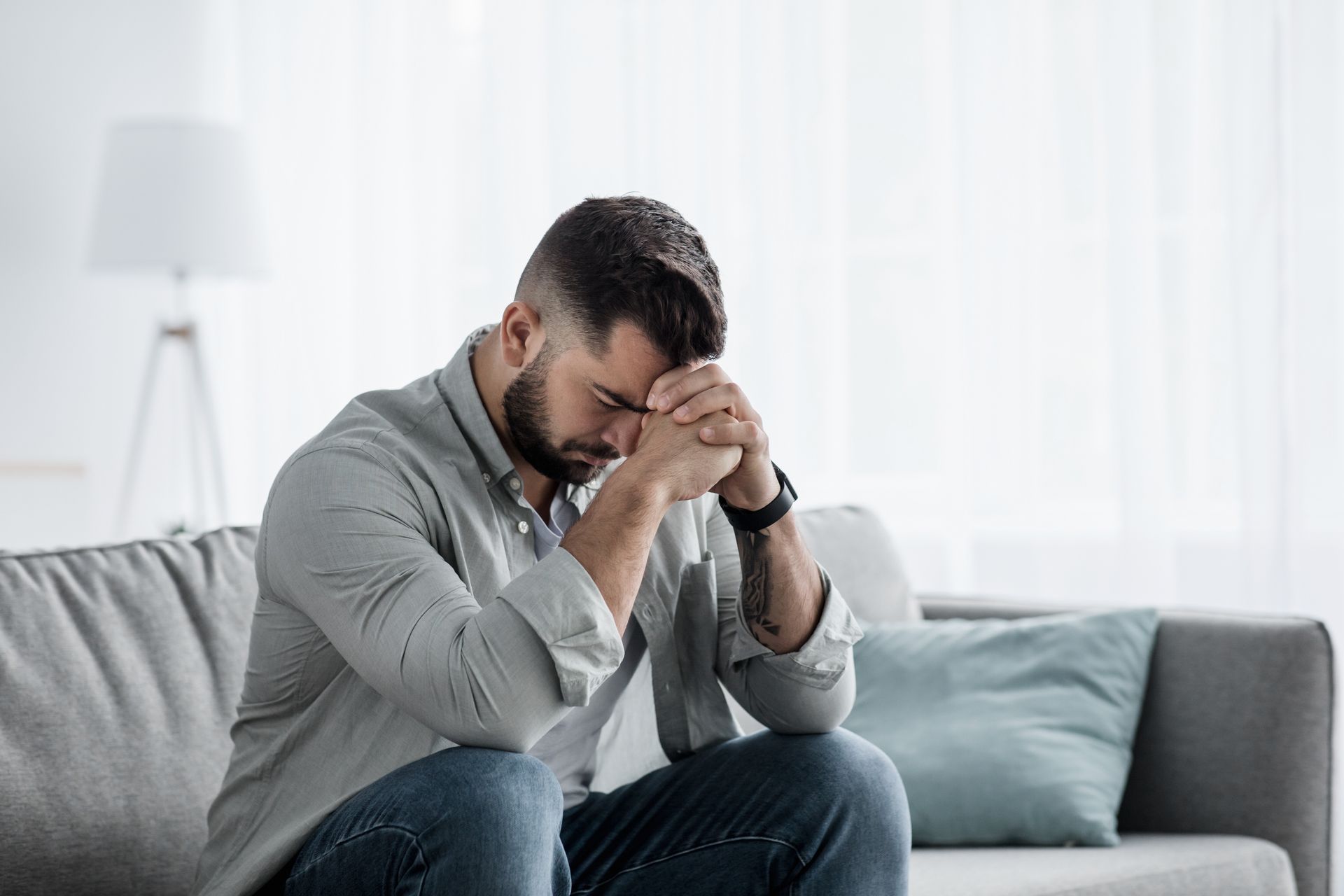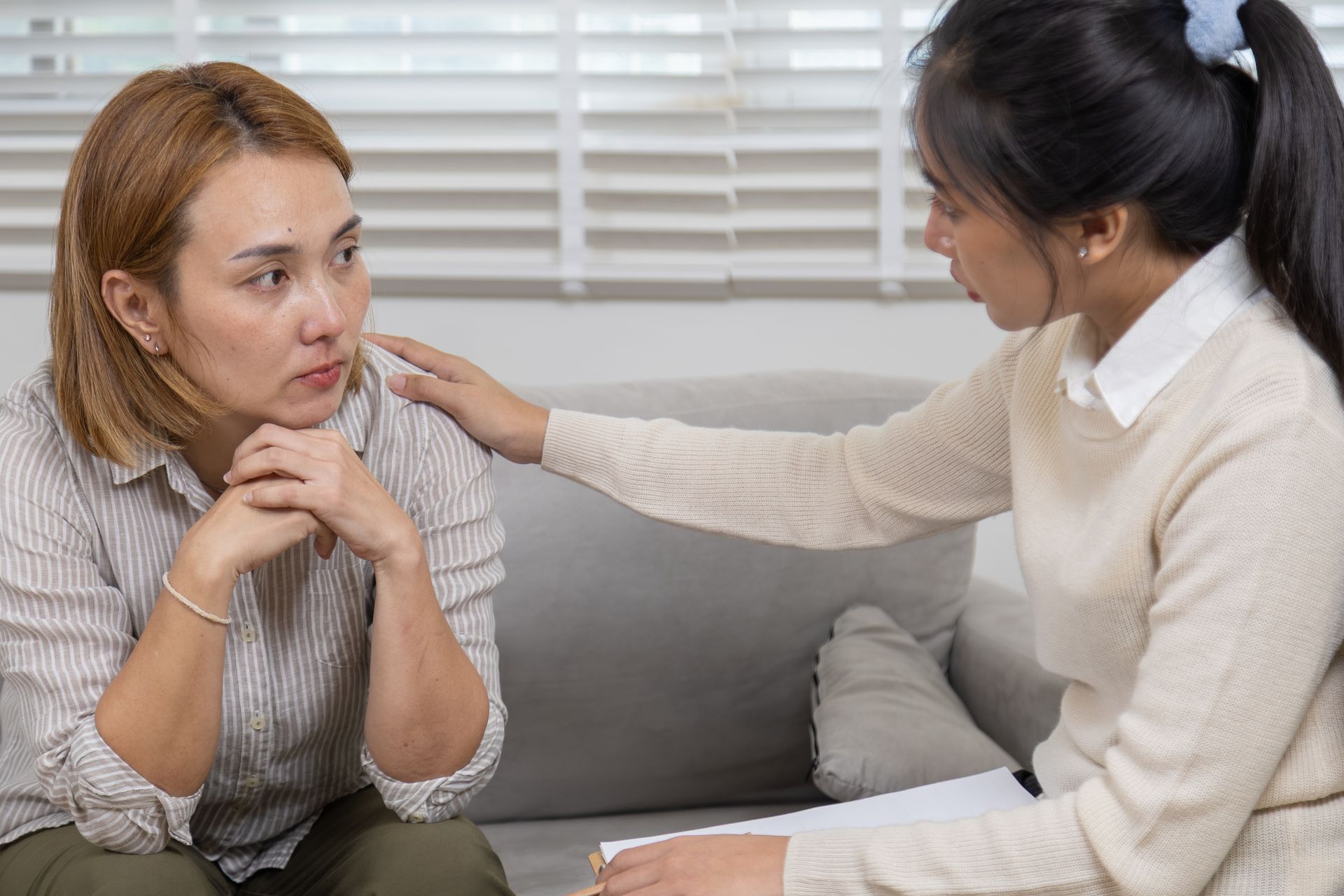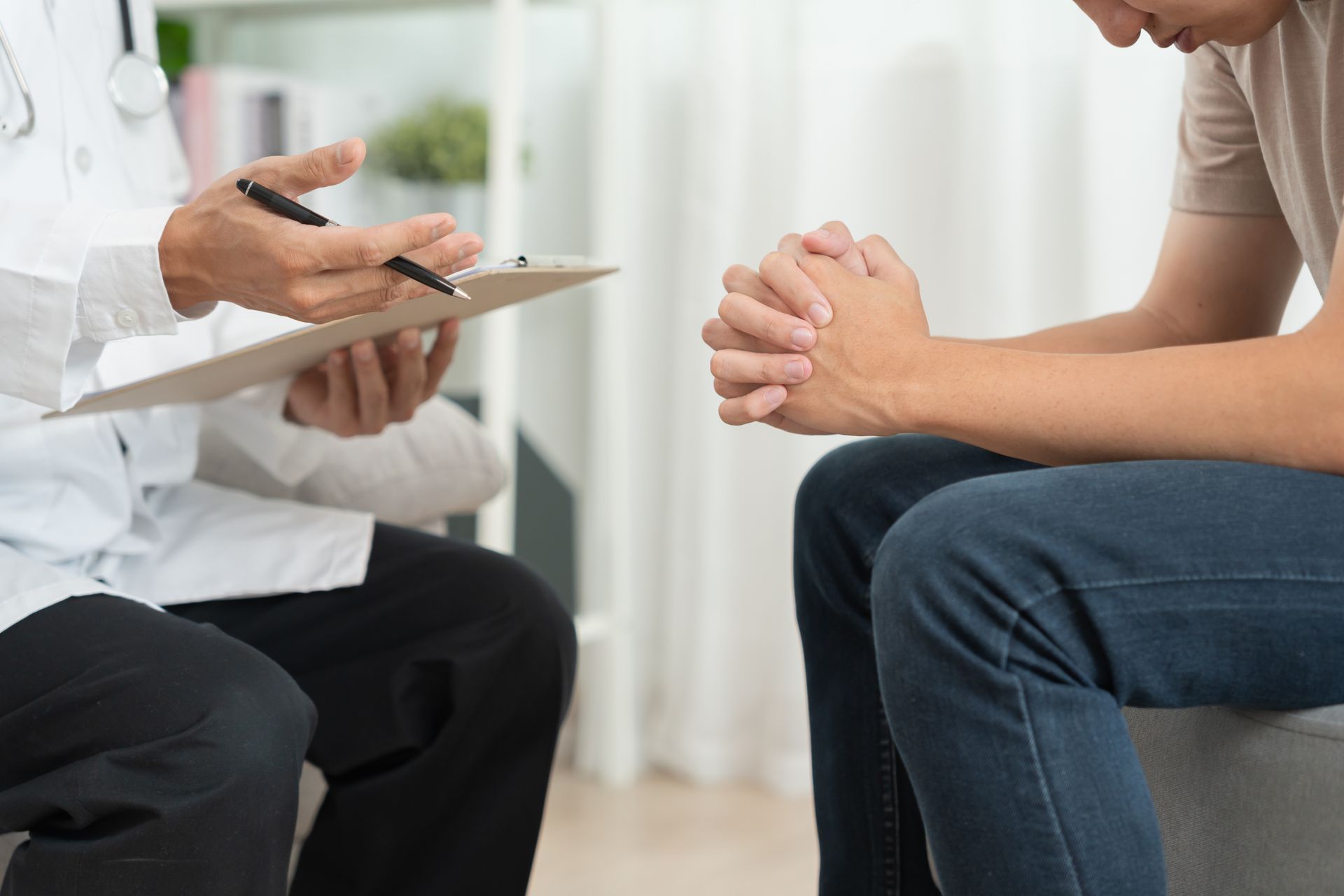Does OCD Get Worse Over Time?

For many people, obsessive-compulsive disorder (OCD) is a condition that can be managed but never truly cured. Even with the right treatment, many individuals find themselves dealing with OCD symptoms and intrusive thoughts over long periods of time – sometimes even into adulthood. But does OCD get worse over time? In this blog post, we will explore the different factors that may contribute to the progression of OCD, and look at how individuals can manage their symptoms in order to live a more balanced life.
What is OCD?
Obsessive-compulsive disorder (OCD) is an anxiety disorder in which people have unwanted and repeated thoughts, feelings, images, or sensations (obsessions) and engage in behaviors or mental acts in response to these obsessions (compulsions). Common obsessions include fear of contamination or becoming contaminated by germs; concerns about orderliness, perfectionism, excessive doubt, and preoccupation with religious, moral, or sexual issues; recurrent intrusive thoughts that are unwanted and cause distress; and repetitive behaviors such as hand washing, counting, checking locks on doors.
Compulsions are often performed in an attempt to relieve anxiety or prevent something bad from happening. However, these behaviors generally provide only temporary relief from anxiety and often cause additional problems. People with OCD may be aware that their obsessions are irrational but feel unable to resist them. They may avoid situations that trigger their obsessions or compulsions. OCD can interfere with work and school performance, social activities, and personal relationships. The exact cause of OCD is unknown but it is thought to be related to changes in certain brain chemicals
Symptoms that could worsen OCD
There are a few potential symptoms that could worsen OCD over time. One is the development of new and more severe compulsions. For example, someone who used to only wash their hands after coming into contact with germs may start to feel the need to wash them obsessively throughout the day. Another potential symptom is an increase in the amount of time spent carrying out compulsions.
Someone with OCD might start to spend hours every day performing their rituals, which can interfere with work, school, and other important activities. Additionally, the anxiety and distress caused by OCD may become more intense over time, making it even harder to manage the condition.
Who Suffers from OCD?
People of all ages can suffer from OCD, including children and teenagers. According to the International OCD Foundation, 1 in 40 adults and 1 in 100 children have been diagnosed with OCD.
There is no one answer to this question, as OCD can affect people of all ages, genders, and backgrounds. However, some groups of people seem to be more vulnerable to developing OCD than others. For example, OCD is more common in people who have a family history of the disorder, as well as those who suffer from anxiety or depression. Children and adolescents are also at a higher risk for developing OCD, although it can occur at any age.
Preventing OCD from Getting Worse
Most people with OCD will experience some ups and downs in their symptoms, but it is possible for the disorder to get worse over time. This is more likely to happen if the person is not receiving treatment, or if their current treatment is not effective. There are some things that can be done to prevent OCD from getting worse, such as:
- Getting regular exercise
- Eating a healthy diet
- Reducing stress
- Practicing relaxation techniques
- Sticking to a treatment plan
Therapy or Medication
It depends on the individual and the severity of their OCD. Some people find that their OCD improves with therapy, while others find that medication is more effective. There are also some people who find that a combination of both is best for them.
How to Manage Triggers
There are many different ways to manage triggers, and what works for one person may not work for another. Here are a few ideas to get you started:
- Identify your triggers: This is the first and most important step. Once you know what your triggers are, you can start to develop a plan to deal with them.
- Avoid or limit exposure to your triggers: If possible, try to avoid or limit your exposure to things that trigger your OCD. For example, if cleaning materials trigger your OCD, try to use them only when absolutely necessary.
- Develop a coping strategy: If you can't avoid or limit your exposure to a trigger, develop a strategy for dealing with it. For example, if being in a messy room triggers your OCD, have a set routine for cleaning up that you can do quickly and efficiently.
- Challenge your thoughts: When you're exposed to a trigger, it's common for negative and intrusive thoughts about the trigger to pop into your head. Challenge these thoughts by asking yourself whether they're really true. Are you really going to get sick if you touch that doorknob? Is that really a dirty word? Most likely, the answer is no.
- Focus on something else: Sometimes the best way to deal with a trigger is simply to distract yourself with something else. If you're feeling triggered, try focusing on something positive or enjoyable instead.
When to Seek Treatment
If you are struggling with OCD, it is important to seek treatment as soon as possible. OCD can get worse over time if it is left untreated. It can also lead to other mental health problems, such as anxiety and depression. Treatment for OCD can be very effective, and it is important to find a therapist who specializes in treating OCD.
Where to Seek Treatment
There is no one-size-fits-all answer to this question. The best place to seek treatment for OCD will depend on a number of factors, including the severity of your symptoms, your financial situation, and your preferences in terms of treatment modalities.
If you have mild OCD symptoms that are not significantly interfering with your life, you may be able to manage them with self-help strategies such as exposure and response prevention (ERP). ERP involves gradually exposing yourself to the things that trigger your OCD symptoms and then learning to resist the urge to engage in compulsive behaviors. This can be a challenging process, but it can be effective for some people.
If your OCD symptoms are more severe or if self-help strategies haven't been effective, you may need to seek professional help. There are a number of different types of professional treatment for OCD, including cognitive behavioral therapy (CBT), medication, and intensive outpatient programs. CBT is a type of therapy that focuses on helping you change the thoughts and behaviors that contribute to your OCD symptoms. Medication can also be an effective treatment for OCD, especially when used in conjunction with CBT. Intensive outpatient programs provide more intensive treatment than traditional outpatient therapy, but they allow you to live at home while receiving treatment.
The most important thing is to find a treatment that works for you. if your OCD is interfering with your quality of life,
try finding help with us.
Final Thoughts
If you're living with OCD, you may be wondering if the condition will get worse over time. Unfortunately, there is no easy answer to this question. While some people find that their OCD symptoms improve with time and treatment, others find that the condition worsens. It's important to remember that everyone experiences OCD differently, so it's impossible to say for sure how the condition will progress for any one individual. If you're concerned about the possibility of your OCD getting worse, be sure to talk to your doctor or therapist. They can help you develop a plan for dealing with any worsening symptoms.











